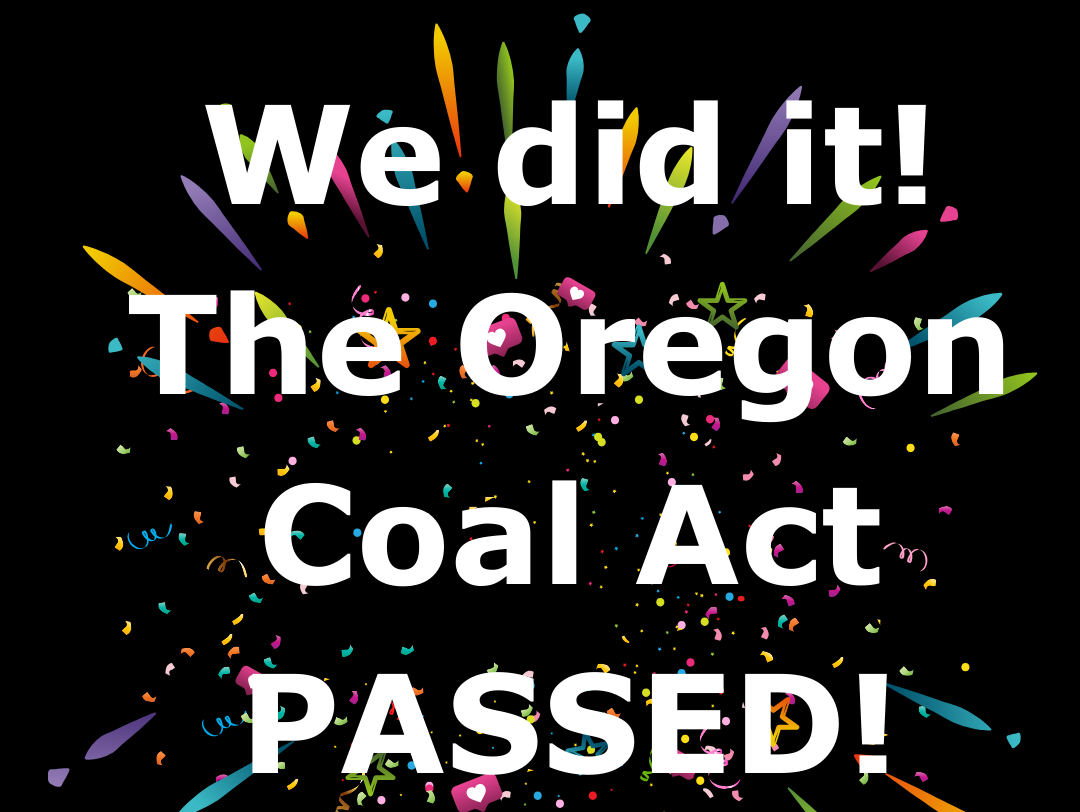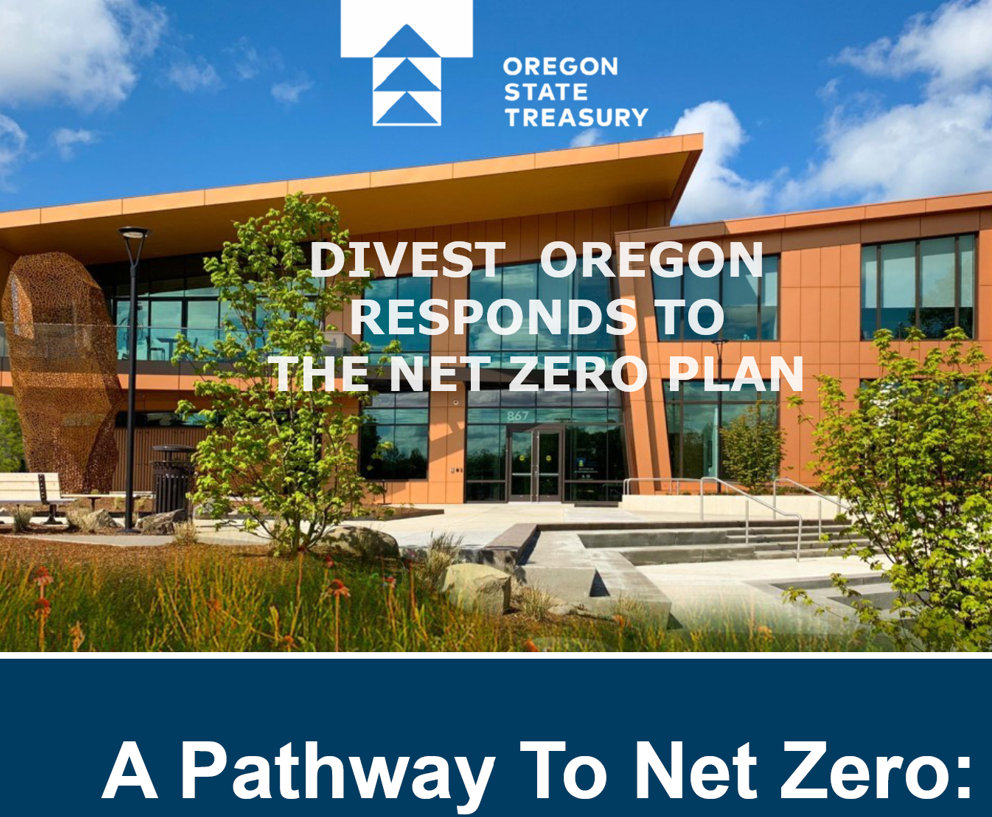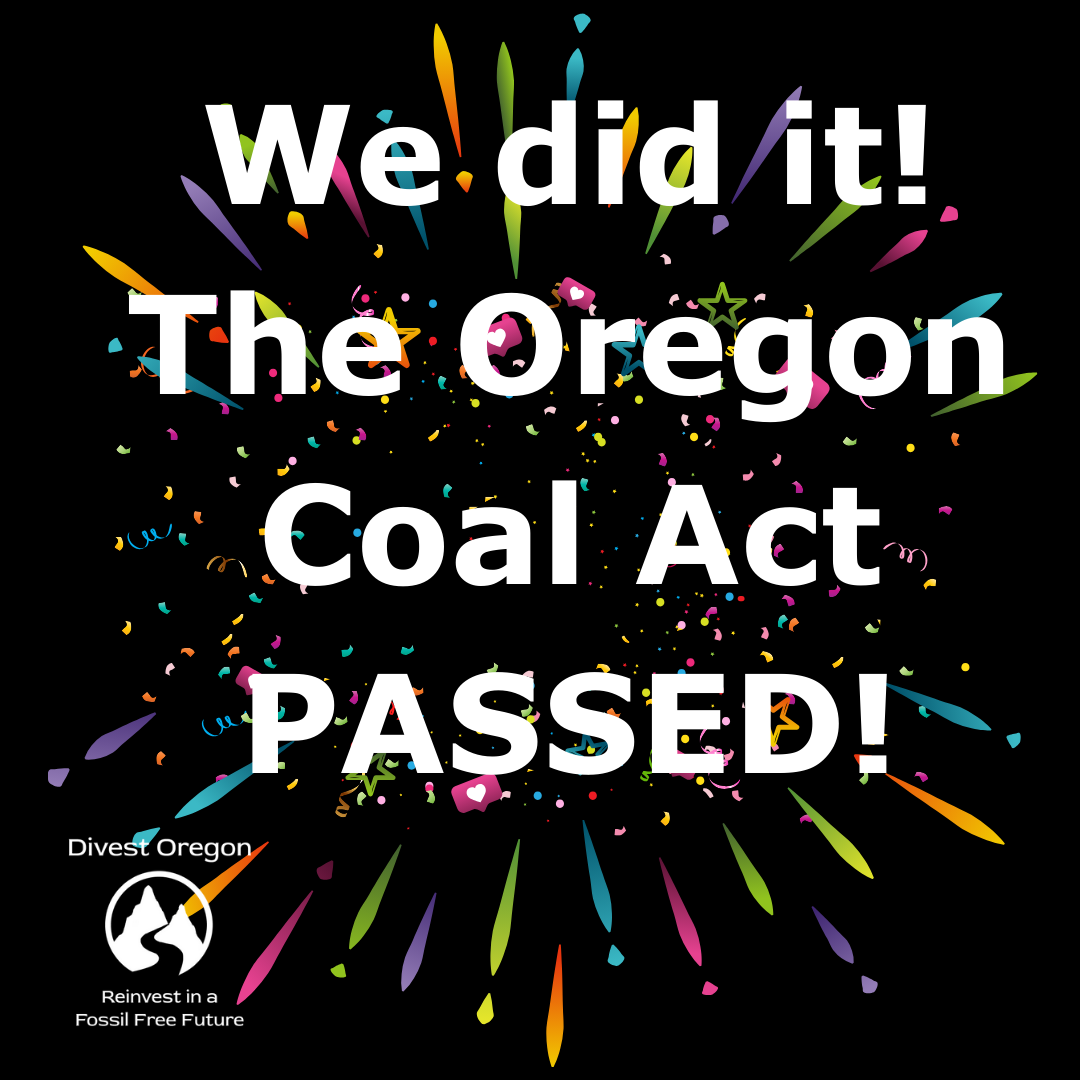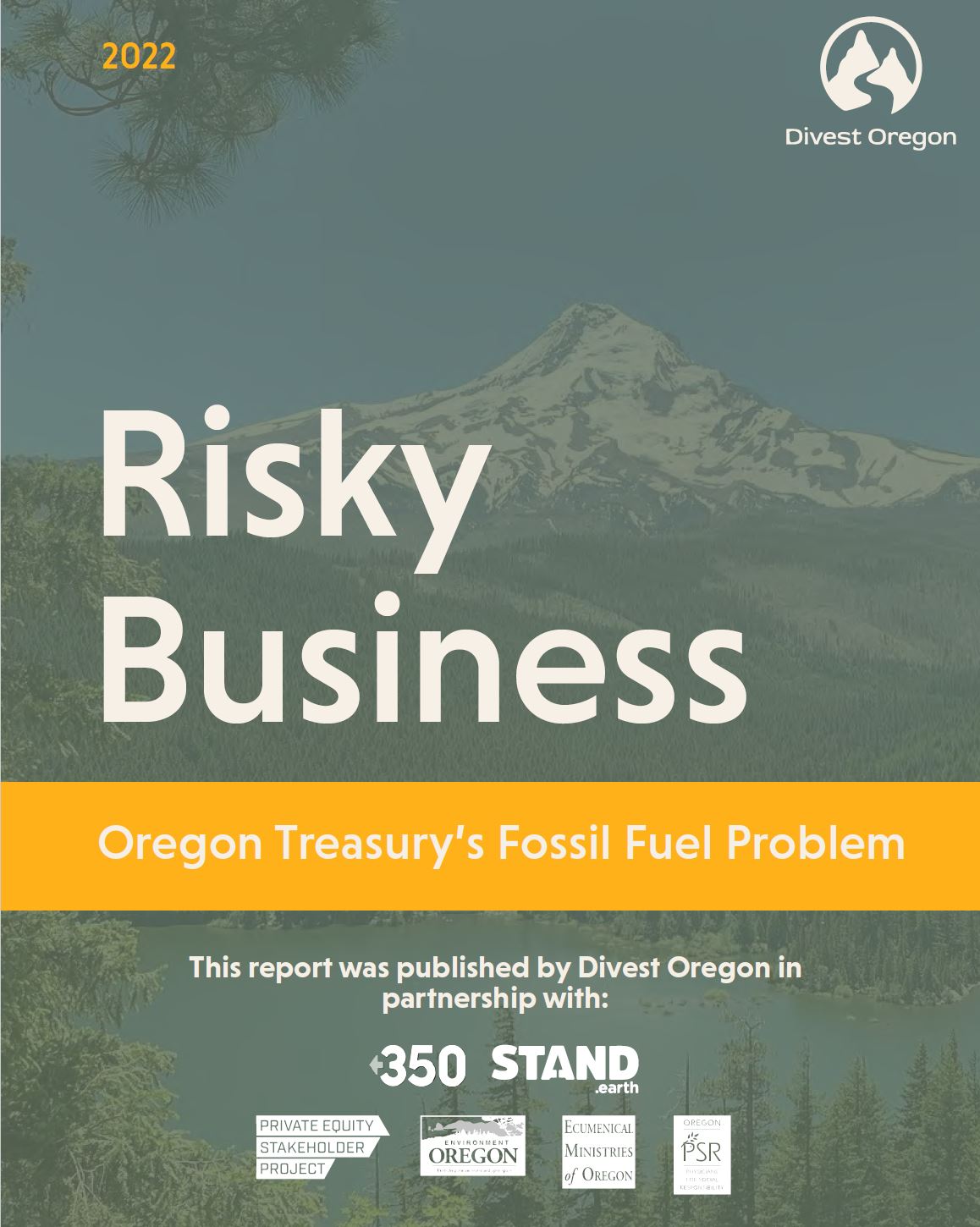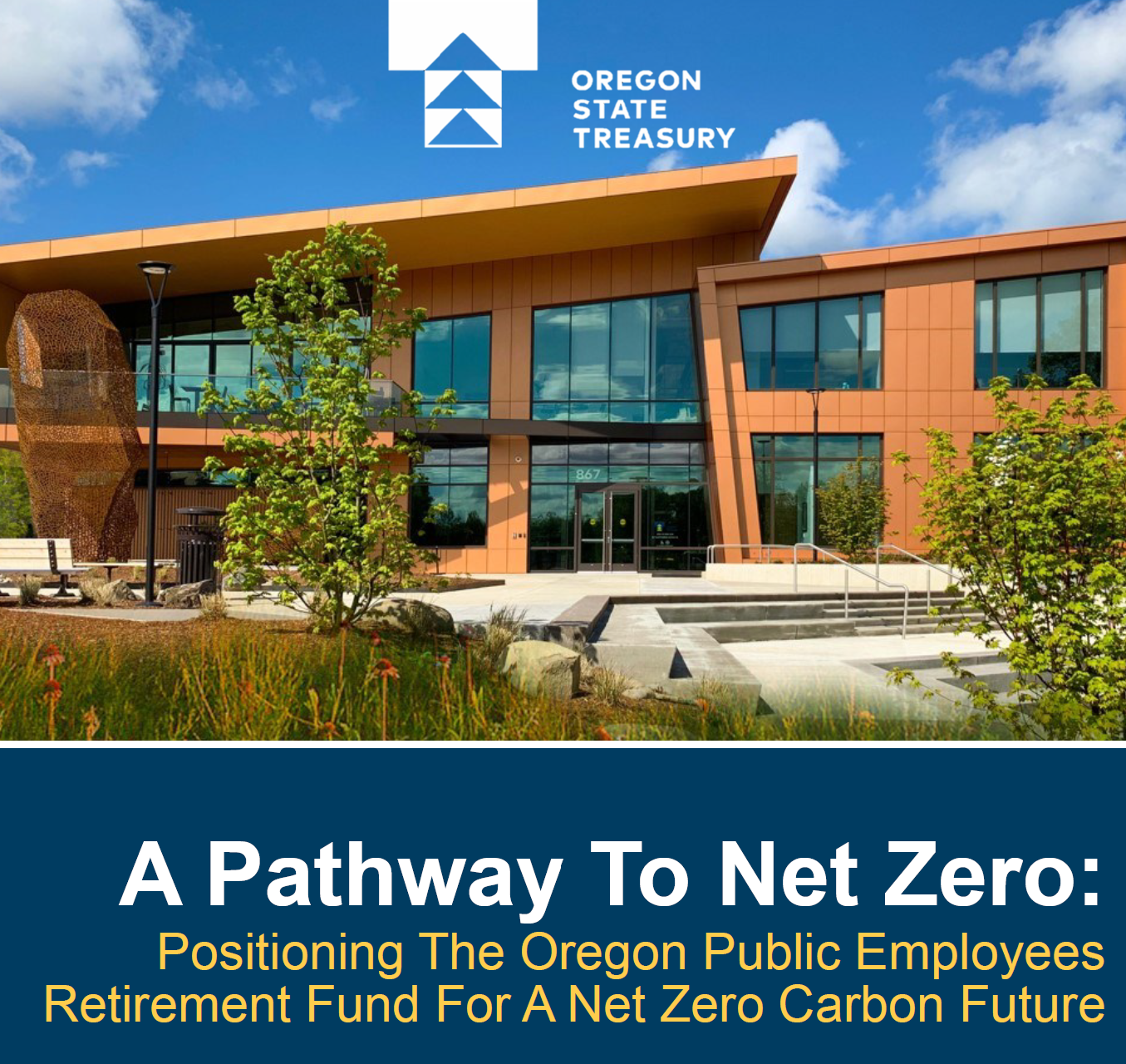26 Mar, 2024
In the Fall of 2023, Divest Oregon’s legislative workgroup faced a dilemma. In the 2023 Legislative session, the coalition’s Treasury divestment bill (Treasury Investment and Climate Protection Act - HB 2601 ) had not made it out of legislative committee. Now we were facing a short session where there simply was not time for the kind of patient politics that might bring more legislators on board for such a bill. Yet, Oregon was just coming through the hottest summer on record: climate change was clearly accelerating, and the science was clear that fossil fuels were driving this dangerous change. So the workgroup studied the concerns of legislators and the Treasurer: All of us shared the goal of protecting the Public Employee Retirement Fund (PERS) for Oregonians. However, as long as the Treasurer opposed a bill, we could not move enough legislators to action, even by showing data that fossil fuel divestment would improve the Treasury’s financial position. With these facts in mind, the workgroup decided on a 3-pronged approach for the COAL Act – the Clean Oregon Asset Legislation bill – HB 4083 with Representative Khanh Pham as the chief sponsor of the bill and Senator Jeff Golden as the co-chief sponsor in the Senate. First, crafting a bill that was right-sized for the short session. From Divest Oregon research based on public records requests for data from the Treasury, it was now public knowledge that the Treasury was investing at least $1billion in coal-based projects. Whenever Divest Oregon members discussed this with anyone, jaws dropped. “Coal? Really?” So thermal coal (coal used in power plants) – one of the worst emitters of CO2 and pollution – became the focus of the bill. The major arguments presented in the one-pager to legislators focused on the scale of the issue and the fiscal need for the bill. Additional Divest Oregon research suggested that over an 8 year period the Oregon PERS’ coal investments had underperformed, with the research corroborating data from California’s CalPERS about the savings they experienced from coal divestment. Second, engagement with the Treasurer and his staff. Although the Treasurer was creating a net zero plan, and acknowledging publicly that fossil fuels and climate change posed significant risks to financial returns, Divest Oregon had concerns that this plan would not meet the urgency of climate change. So Rep Khanh Pham, in consultation with Divest Oregon leaders, met regularly with the Treasurer and his chief of staff to hammer out language for the bill that was acceptable on all sides. The language of the bill became advisory, similar to the Sudan divestment bill of 2005, which had successfully resulted in the Treasury removing over $300 million in investments from Sudan. The definition of coal investments were aligned with the definition in the Treasurer’s net zero plan. Ultimately, the Treasurer agreed to testify in favor of the bill. Third, Divest Oregon advocated for the COAL Act with every legislator in a variety of ways. In January 2024, as the beginning of the short session approached, Divest Oregon organized 100 concerned constituents to go to Salem for a Lobby Day to solidify support and bring legislators on board. Wearing green and sporting Divest Oregon buttons on their lapels, many small groups of voters crisscrossed the capitol building as they went to 35 separate appointments with their representatives and senators. Some more-distant constituents participated via Zoom, through laptops hand-carried to these appointments. At the luncheon afterward, the Lobby Day participants shared three common themes in legislators’ reactions: “Coal? Really? Why are we still invested in that?” “We must protect PERS.” “Does the Treasurer support this bill?” They also reported that, once reassured on these points, many legislators indicated their support for the bill and signed up as co-sponsors. Thank you notes were signed on the spot, and postcards prepared to follow up once the session commenced, workgroups met, and voting began. Throughout the session, coalition members continued to call, email, and meet with their legislators to urge their support for the COAL Act. Two hundred letters of support for the bill were registered as part of the committee hearings (and a mere 8 in opposition.) Rep Khanh Pham, Senator Jeff Golden, and many concerned Oregonians testified passionately and knowledgeably in support of the bill in the legislature’s House and Senate committee public hearings. The Treasurer’s own testimony included his statements that the “The issue of climate change broadly is an urgent risk to the investment returns of the Oregon Public Employee Retirement Fund,” and that the COAL Act “is complementary” to his net zero plan. Only a day before the end of the short session, the COAL Act passed its final hurdle. Once the Governor signs, the COAL Act will become law, and Oregon will become the third state to pass a public pension divestment bill in the United States, after the Maine divestment bill of 2021 and the California coal divestment bill of 2015. Divest Oregon, with all coalition partners, plans to celebrate this historic win on April 2nd, at a reception following the Oregon Treasurer Candidate Forum .


